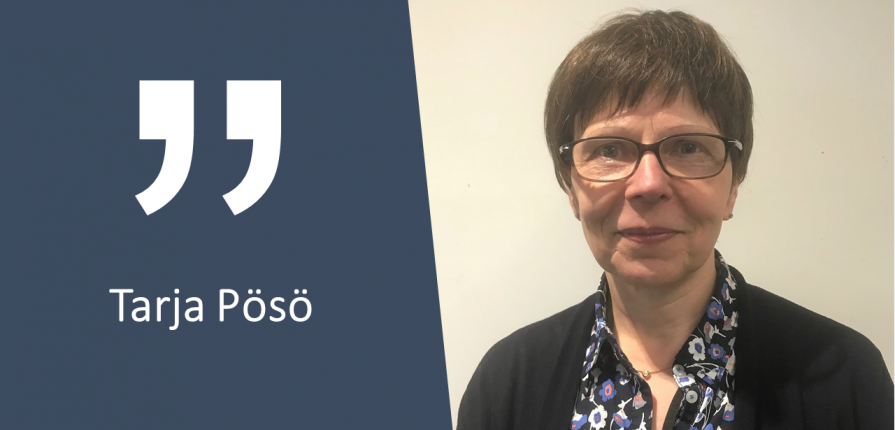BLOG: The role of emotions in child protection are understudied and underemphasized.
Blogpost by Tarja Pösö, Professor of Social Work at Tampere University (Finland), Professor II at the DIPA-centre at UiB and member of the Child Right Unit at Lawtransform.
Finnish TV has recently broadcasted the Danish drama Ulven kommer (‘The Wolf is coming’ or ‘Cry Wolf’ in English) which is an 8-episode story about a family in Danish society, and in the Danish child protection system in particular.
The teenage girl writes about abusive events at home in her school essay with the result that her teacher contacts the child protection services and the social worker starts examining the girl’s situation.
The girl and her young sibling end up in an emergency placement. They, their parents and the audience of this drama are eventually taken into the rooms of the local welfare board making decisions whether the children should be taken into care.
Sparked a debate
This drama inspired a lively range of reviews and viewers’ debate here in Finland. They revolve around two emotional elements: anger and anxiety.
Many viewers report that the behavior of the mother, social worker, stepfather, girl, teacher and legal support made them extremely angry as they behaved ‘wrongly’. Equally, many write about their anxiety as they could not know what really was true in the story.
Many viewers report that the behavior of the mother, social worker, stepfather, girl, teacher and legal support made them extremely angry as they behaved ‘wrongly’.
Tarja Pösö
Was the girl lying? Did the social worker misinterpret the girl’s story? Was the welfare board biased in their judgement? Whom could one trust – anyone? The emotional turmoil of the drama obviously traveled across the borders from Denmark to Finland.
The role of emotions
Despite their prominent role in how we see and rate child protection, academic studies of child protection have dwelt surprisingly little on emotions – if the studies of the role of media are excluded.
There are, however, some inspiring insights into the role of emotions. Joanne Warren (2015) writes about collective emotions and how they through ‘emotional politics’ shape the landscape of child protection, with considerable variation across the countries.
Matthew Gibson (2019) writes about the need to recognize emotions such as pride, shame and guilt, experienced by families as well as by social workers in order to support more human practice in child protection. Furthermore, more indirectly, emotions are included in the studies of child protection decision-making and its errors and mistakes in particular.
Despite their prominent role in how we see and rate child protection, academic studies of child protection have dwelt surprisingly little on emotions
Tarja Pösö
When we mapped out the strategies to combat errors and mistakes in some Western countries (Biesel et al. 2020), we came across the emotional implications of those strategies.
As a result of scandalisation, for example, fear may make children and parents avoid child protection services if they have a reason to believe that they should be afraid of wrong judgements and poor care. Fear may equally result in staff-shortages if practitioners are reluctant to work in hostile child protection environment as a result of scandalization as well as that of responsibilisation.
One of the most worrying strategies is ‘non-recognition’ or ‘non-reaction’ in which errors and mistakes are silenced and taken away from public scrutiny. The implications of that strategy are about ‘not-doing’ which does not employ any emotional vocabulary. Is it really so that you need emotions to act in child protection?
Emotions in child protection
Emotions can serve as a platform for critical awareness and action, and they often do so in child protection. Therefore, it is important to acknowledge their role and impact in child protection.
Emotions can serve as a platform for critical awareness and action, and they often do so in child protection.
Tarja Pösö
However, they do not provide any straightforward information or guidance. Anger and anxiety based on a TV drama highlight how differently the same events may be portrayed, and how different the views of good – or good enough – practice would be depending on one’s feelings.
Indeed, while recognizing the emotions and information embedded in them, a much more complex and tested knowledge base is needed to cope with the challenges and uncertainty of child protection for the sake of children, parents and social workers outside the drama settings.
References
- Biesel, K., Masson, J., Parton, N. and Pösö, T. (eds.) (2020) Errors and mistakes in child protection. International discourses, approaches and strategies. Bristol: Policy Press.
- Gibson, M. (2019) Pride & shame in child and family social work. Bristol: Policy Press.
- Warner, J. (2015) The emotional politics of social work and child protection. Bristol: Policy Press.


